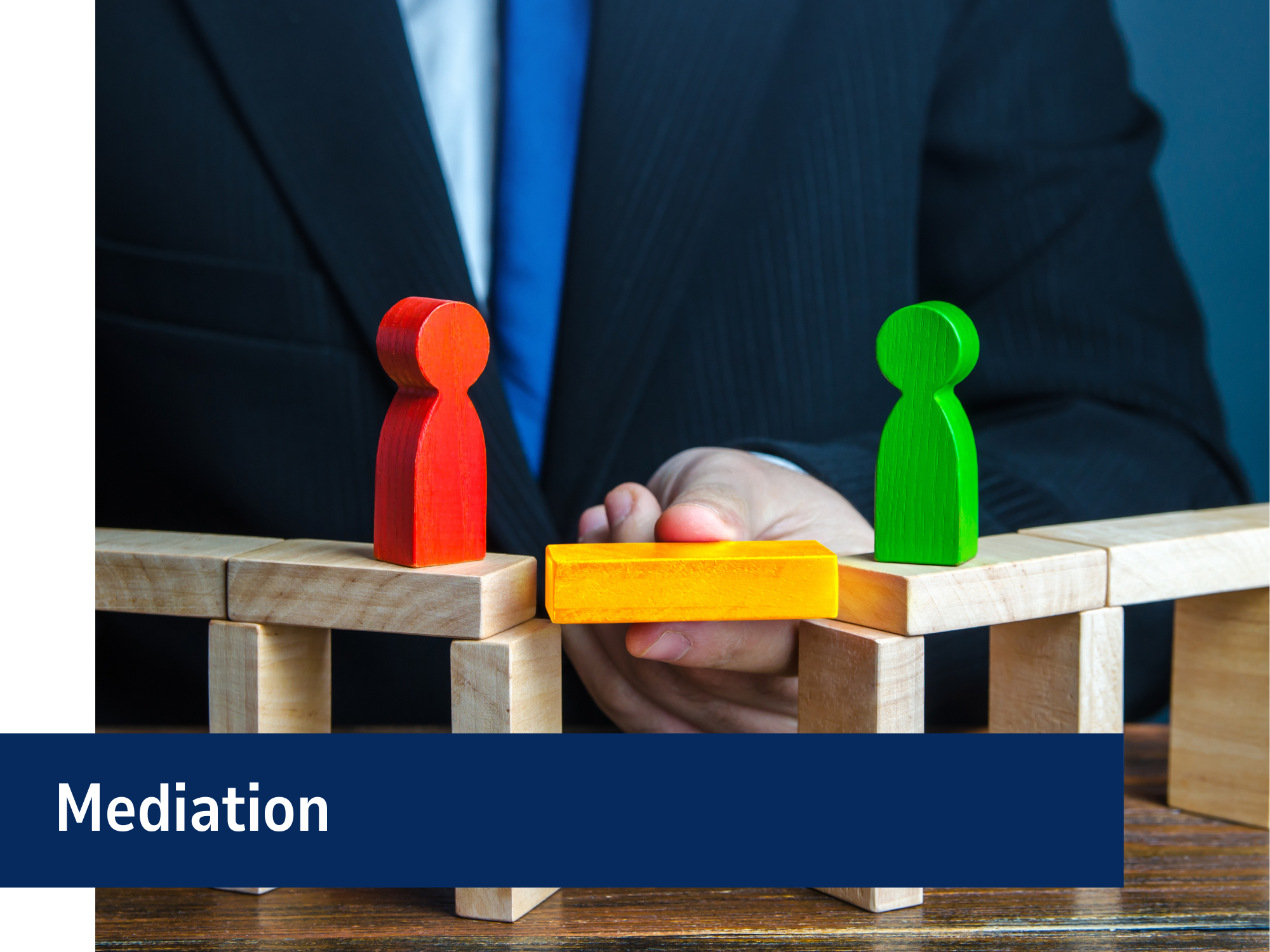What is mediation and how can it help?
Mediation is a very effective and straightforward way to resolve disputes between neighbours. It helps you and the other people involved to reach an agreement that you can both live with.
Common issues where mediation has worked in the past include:
- Noise disturbances
- Anti-social behaviour
- Parking problems
- Problems with pets and other animals
- Boundaries and maintenance
- Shared access to communal areas.
Mediation could help you and your neighbour to resolve a dispute or argument related to any of these issues.
It gives you a chance to talk to your neighbour in a fair and constructive way, where you can be heard and can hear what they have to say. We will ensure the mediation takes place in a neutral place at a time that suits both parties.
Mediation is a completely confidential and voluntary process - you cannot be forced to take part and can stop at any time if you wish. The mediators ensure that the process is balanced and that both parties are treated respectfully during the discussions.
Our mediators are qualified and experienced in helping people settle their disputes without the need for any formal action. They have a high success rate in helping people to reach an agreement between themselves - they will not tell you what to do - they will help you to find an answer that will improve things for everyone involved.
The mediator will meet with each neighbour individually for around an hour. This private meeting will allow each person to explain their individual issues, and to begin to think about what they will need to happen in order to resolve the dispute
If the mediators and both parties are happy to progress, then a joint meeting is arranged. This can last between one and three hours.
Ground rules are established during this session and each person is given the opportunity to speak uninterrupted about the issue from their point of view. This is followed by a discussion of how an agreement might be made.
It can be difficult and emotional - the mediator is there to ensure that both parties are heard and that any agreement is mutually beneficial. Another room will be available if either party wishes to take a break at any point.
We find that mediation is a fantastic way of diffusing disagreements and helping parties reach an agreement. The aim isn't to make everyone best friends, we just want a clear agreement that will improve the situation and that both parties are willing to stick to. If successful, an agreement is written up and signed by both parties. It is not legally binding and doesn't involve us as a landlord - it is an agreement between the two parties only
You are welcome to contact us to talk informally and confidentially about whether mediation might help your situation. If you are requesting mediation yourself, we can offer to contact your neighbours on your behalf.
Tips for resolving disputes
Many disputes can be prevented from escalating by trying the following:
- Speak to your neighbour before getting angry or upset
- Choose a time and place that is convenient for both of you
- Plan or rehearse what you want to say before you say it
- Listen carefully and respectfully - this means your neighbour is more likely to do the same
- Try to remain calm and open
- Be prepared to offer concessions and compromise
- Let you neighbour know that you have heard their concerns, so they may be more prepared to hear yours
- Keep to the issues that are relevant and be clear about what it is that concerns you
- Avoid shouting or using abusive language
- Try to concentrate on what you are going to do moving forward - leave the past in the past.




